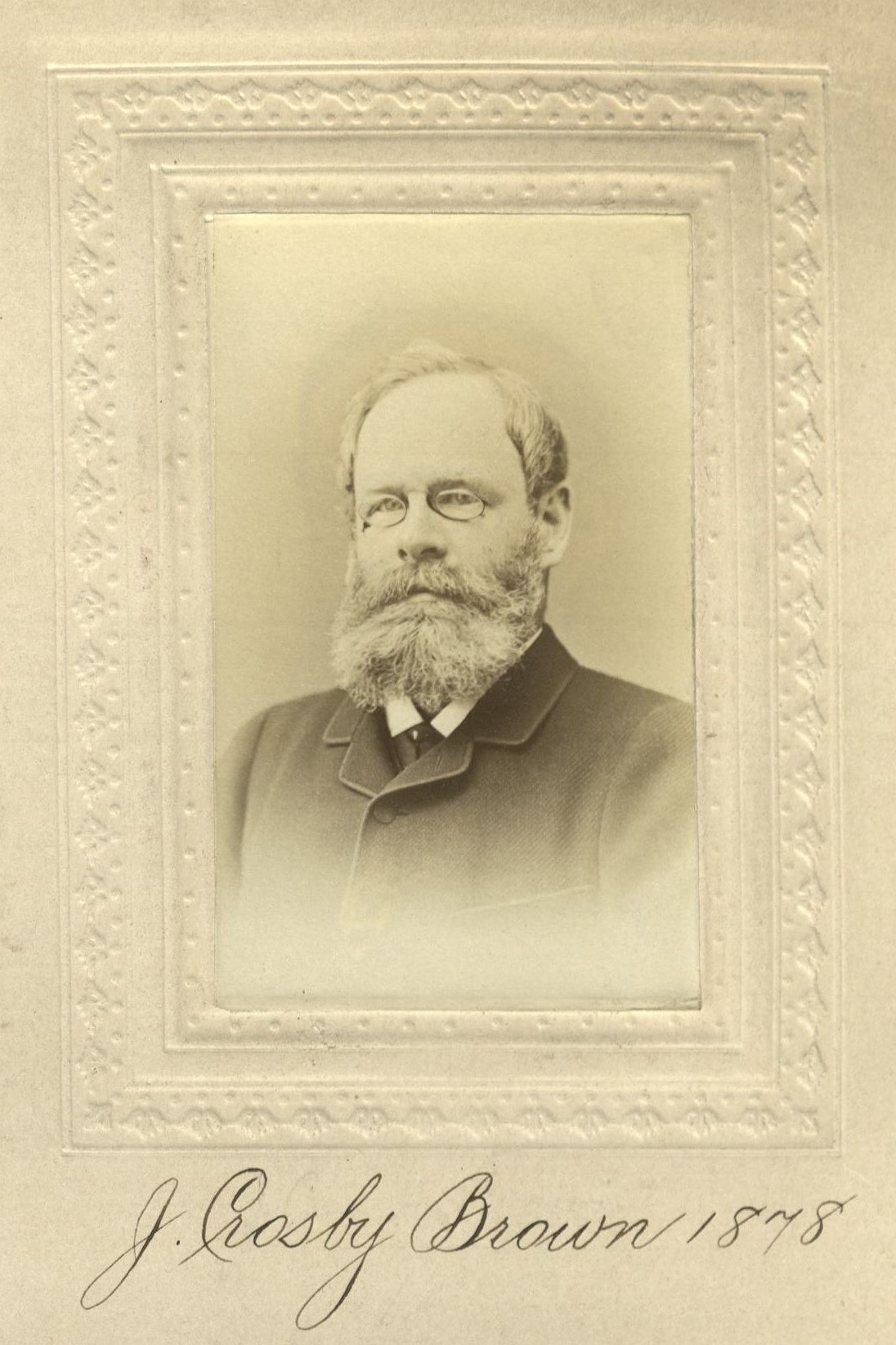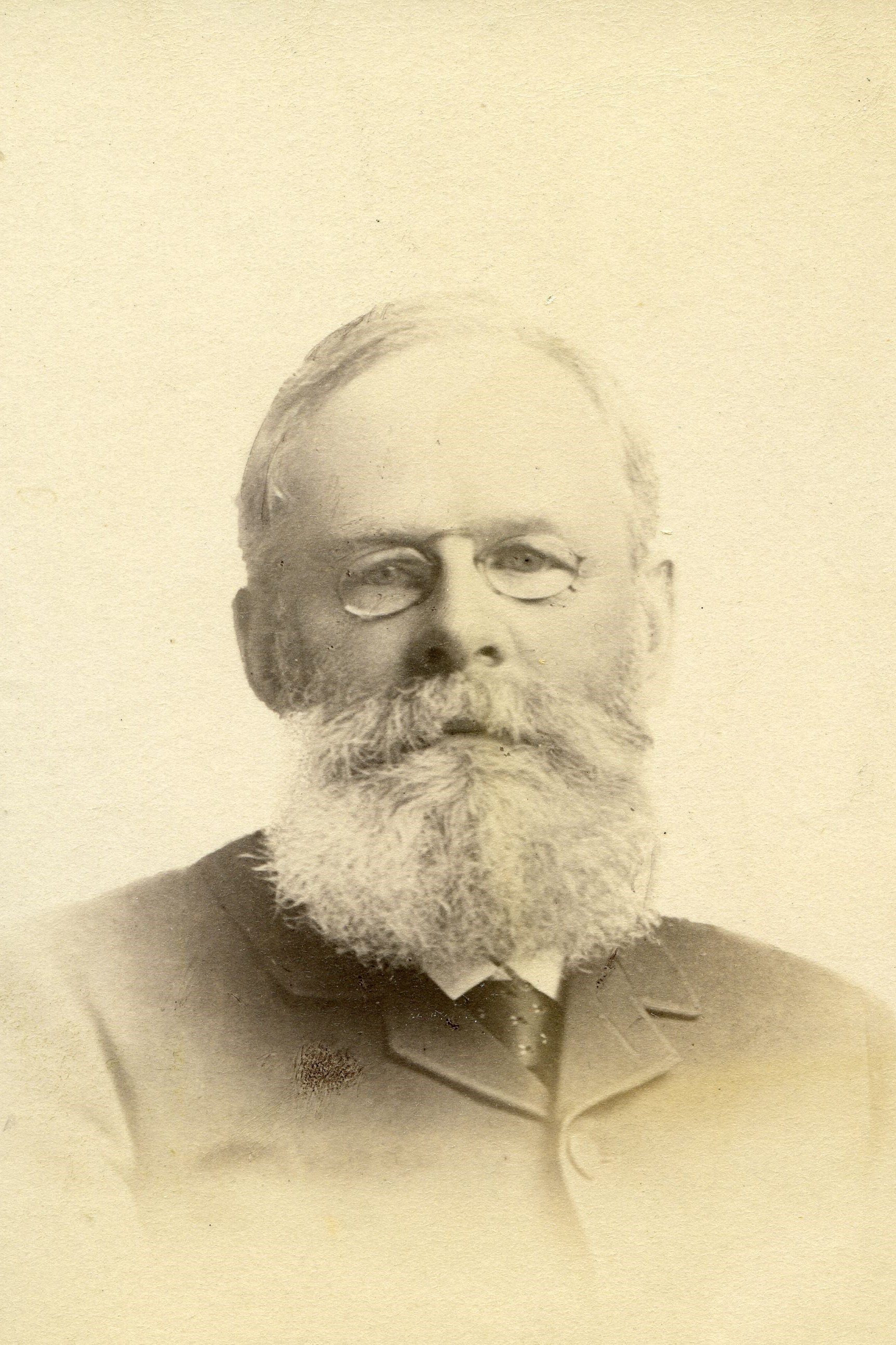Banker
Centurion, 1878–1909
Born 22 May 1838 in New York (Manhattan), New York
Died 25 June 1909 in West Orange, New Jersey
Buried Green-Wood Cemetery , Brooklyn, New York
, Brooklyn, New York
Proposed by Frederick A. P. Barnard and Roswell D. Hitchcock
Elected 1 November 1878 at age forty
Archivist’s Note: Son-in-law of William Adams; father of Thatcher M. Brown and William Adams Brown; great-grandfather of William Adams Brown Jr.; father-in-law of Edward Caldwell Moore; uncle of Moreau Delano and William Adams Delano; grandfather of William Adams Brown Jr. and John Crosby Brown Moore
Proposer of:
Century Memorial
John Crosby Brown was in his seventy-second year at death and in the thirty-second of his membership here. A New Yorker by birth, he graduated at Columbia and was trained as a banker on both sides of the sea. He was not only the directing partner of the great banking house which bears his family name, he was a leading spirit in nine other financial corporations of great importance, a trustee of the Metropolitan Museum, of Union Seminary and of Columbia University. This enumeration might arouse incredulity as to the extent of finite powers, but in each and all of his spheres he exercised a powerful, and in some a dominating influence. This was due in measure to natural gifts, but it was mainly due to a disciplined soul which enabled him to turn swiftly from task to task, to use the measure of his time advantageously, and throughout a long life to find recreation and refreshment in a home where the highest standards were cultivated.
This great merchant was great likewise in the views he entertained of responsibilities. Within two years four men of similar mark have been taken from our ranks—all friends or dear acquaintances, all majestic figures in the life of the Metropolis, all successful in their enterprises, all princely in their munificence, and all devoted to the service of the community. In this constellation Mr. Brown shone second to none. He was faithful in little and faithful in much; in church, in state and in family he was true to his inheritance of liberty, religious and political, to the sanctity of the institutions central to our very existence. The son of a philanthropist, he too was a lover of his kind; devoted to the church of his fathers, the fear of God was the essence of his being; and it took the form of wisdom in education, in beauty, in the fine arts and in the finest of all arts, that of pure and noble living. It was in the exhibition of such qualities that he became a very foremost citizen of New York, known of all men and heeded in our chiefest concerns, a force behind every uplifting influence. To Union Seminary, whose interests were an heirloom, he devoted his very highest powers as head of its trustees and was ever indefatigable in the study of its interests. The noble pile of buildings on our educational acropolis devoted to its uses, were his joy and pride; his last public appearance was in laying their corner stone.
The friendships of this association he prized as his was prized by us. Nowhere were his high breeding, his gentle nature, his kindly spirit, his wide experience and knowledge more free in their play than in these places. While they may know him no more, his memory will long remain green where he was best known and most appreciated.
William Milligan Sloane
1910 Century Association Yearbook


